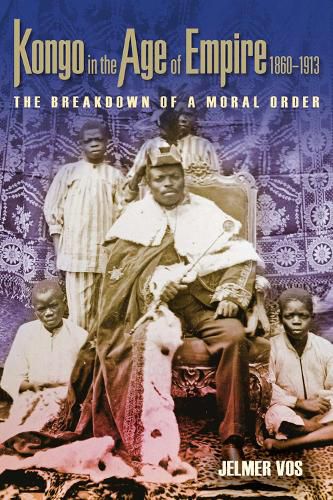Readings Newsletter
Become a Readings Member to make your shopping experience even easier.
Sign in or sign up for free!
You’re not far away from qualifying for FREE standard shipping within Australia
You’ve qualified for FREE standard shipping within Australia
The cart is loading…






This richly documented account of the arrival of rubber traders, new Christian missionaries, and the Portuguese colonial state in the Kongo realm is told from the perspective of the kingdom’s inhabitants. Jelmer Vos shows that both Africans and Europeans were able to forward differing social, political, and economic agendas as Kongo’s sacred city of Sao Salvador became a vital site for the expansion of European imperialism in Central Africa. Kongo people, he argues, built on the kingdom’s long familiarity with Atlantic commerce and cultures to become avid intermediaries in a new system of colonial trade and mission schools.
Vos underlines that Kongo’s incorporation in the European state system also had tragic consequences, including the undermining of local African structures of authority-on which the colonial system actually depended. Kongo in the Age of Empire carefully documents the involvement of Kongo’s royal court in the exercise of Portuguese rule in northern Angola and the ways that Kongo citizens experienced colonial rule as an increasingly illegitimate extension of royal power.
$9.00 standard shipping within Australia
FREE standard shipping within Australia for orders over $100.00
Express & International shipping calculated at checkout
This richly documented account of the arrival of rubber traders, new Christian missionaries, and the Portuguese colonial state in the Kongo realm is told from the perspective of the kingdom’s inhabitants. Jelmer Vos shows that both Africans and Europeans were able to forward differing social, political, and economic agendas as Kongo’s sacred city of Sao Salvador became a vital site for the expansion of European imperialism in Central Africa. Kongo people, he argues, built on the kingdom’s long familiarity with Atlantic commerce and cultures to become avid intermediaries in a new system of colonial trade and mission schools.
Vos underlines that Kongo’s incorporation in the European state system also had tragic consequences, including the undermining of local African structures of authority-on which the colonial system actually depended. Kongo in the Age of Empire carefully documents the involvement of Kongo’s royal court in the exercise of Portuguese rule in northern Angola and the ways that Kongo citizens experienced colonial rule as an increasingly illegitimate extension of royal power.